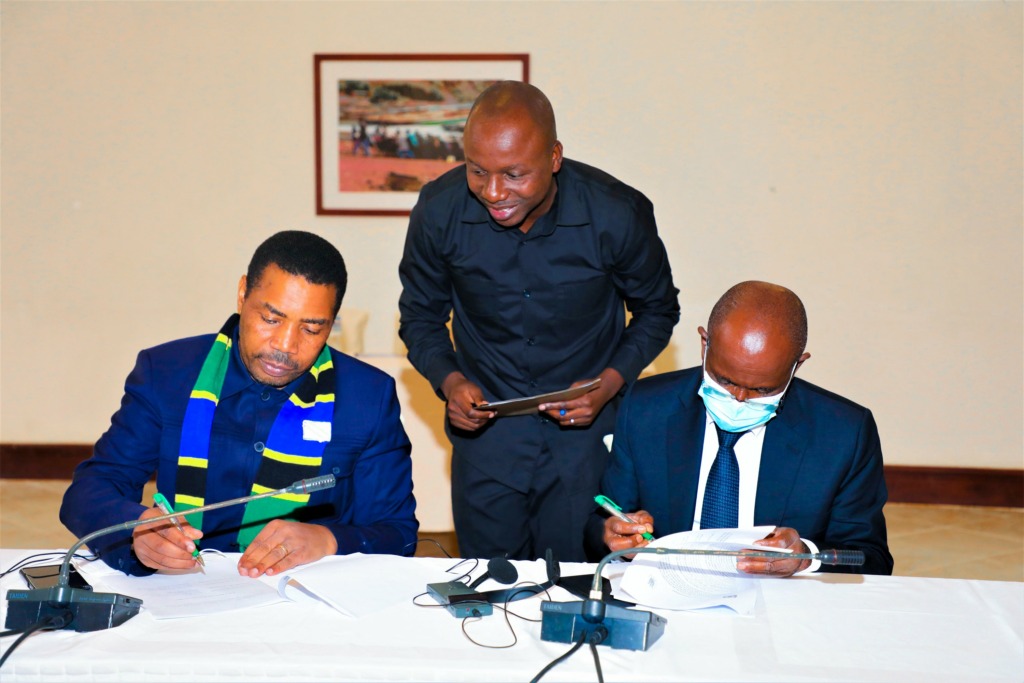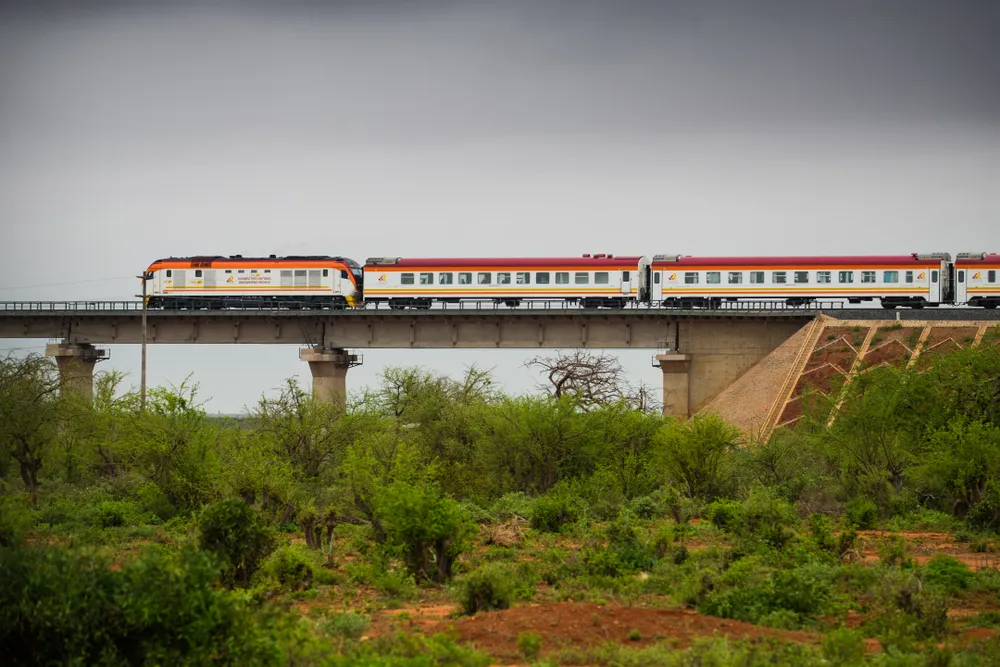Tanzania issued a call for financiers to back a new railway line linking its western town of Uvinza with Burundi’s capital Gitega on Sunday.
“The minister of finance in Burundi and I are starting to look for areas where we can raise money to implement this project,” Tanzania’s finance minister Mwigulu Nchemba said as the project was unveiled in Tanzania’s western region Kigoma.
The planned $900m standard gauge railway (SGR), spanning 282-kilometers, will begin in Kigoma and terminate in Gitega in central Burundi.
The project hopes to transport a million tonnes of cargo between the two countries, and 3 million tonnes of minerals from Burundi to Tanzania each year, a statement issued by Tanzania’s finance ministry said.
“We are telling Tanzanians, Burundians and other areas that will benefit from this railway economically that money will be available,” Nchemba said.
The total cost of the project, to be released after the completion of engineering reports, will be no more than $900m, he added.

Hub hopes
Tanzania hopes to upgrade existing roads and railways to develop a regional transport network that capitalises on its long coastline and connects fast-growing economies in the landlocked heart of Africa from Uganda in the north to Malawi in the south.
“This project is important for Tanzania, Burundi and even Congo who use the Port of Dar es Salaam to transport cargo,” Tanzania’s finance ministry said.
In 2013, Tanzania signed a $10bn framework deal with China’s biggest port operator, China Merchants Holdings, for a new port, special economic zone and railway network in Bagamoyo, 75 kilometres north of Dar es Salaam.
Plans for the Bagamoyo Special Economic Zone (SEZ) were shelved under late president John Magufuli, but revived by President Samia Suluhu Hassan in June.
Another mega infrastructure project with one of China’s regional rival’s Turkey was signed with Turkish construction giant Yapi Merkezi in December. The $1.9bn contract was for the third phase of a planned railway linking Dar es Salaam to the port city of Mwanza on the shores of Lake Victoria, which shares a border with Kenya and Uganda.
East Africa’s second largest economy graduated from low-income country to lower-middle-income country in 2020. It has long competed with Kenya, its largest regional rival, for trade and economic supremacy.
Pandemic-induced shocks slowed Tanzania’s GDP growth from 5.8% in 2019 to an estimated 2% in 2020, as shocks to export-oriented sectors such as tourism, manufacturing, and related services diminished business revenue and labour income. The economy rebounded 5.1% in 2021, and is expected to expand by a further 5.1% in 2022, according to the IMF.
Want to continue reading? Subscribe today.
You've read all your free articles for this month! Subscribe now to enjoy full access to our content.
Digital Monthly
£8.00 / month
Receive full unlimited access to our articles, opinions, podcasts and more.
Digital Yearly
£70.00 / year
Our best value offer - save £26 and gain access to all of our digital content for an entire year!
 Sign in with Google
Sign in with Google 



